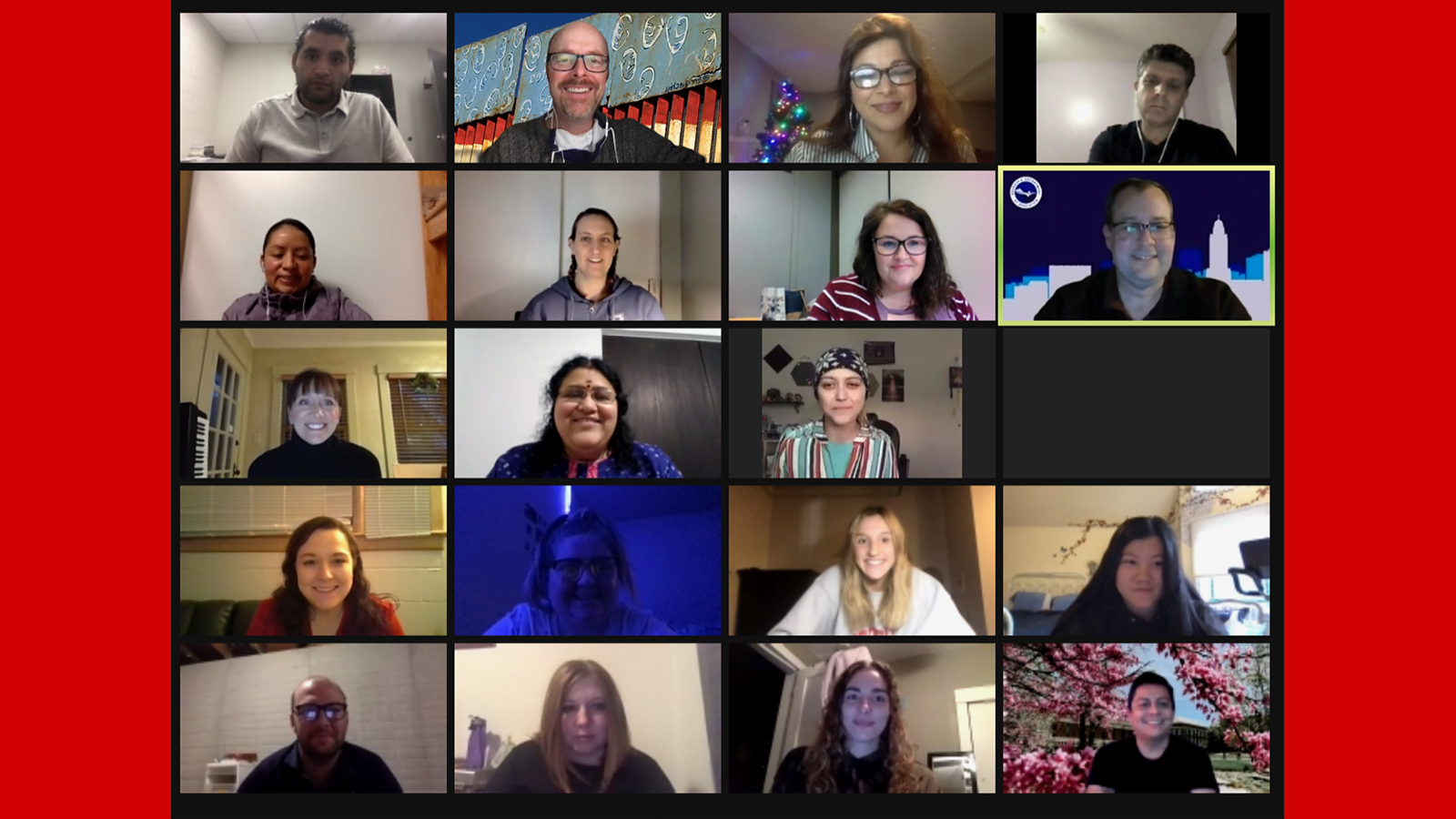
Winter session course explores schools as key pieces to helping meatpacking communities recover after pandemic
10 Dec 2020 By Kelcey Buck
The current COVID-19 pandemic and the University of Nebraska-Lincoln’s call for innovative courses for its three-week session in December was the impetus behind the creation of “TEAC 431J/831J: Pandemics, Schools, and Helping Meatpacking Communities Recover from COVID-19.” But the origins of the course date back much further, and the three faculty members co-teaching the course hope its impacts are equally long-lasting.
As a graduate student in anthropology in the early 1990s, Ted Hamann, professor of Teaching, Learning and Teacher Education, became interested in the ways in which small towns across the heartland of America were navigating a demographic change as meatpacking plants began hiring more workers of Mexican origin.
“My interest then and now was always as an anthropologist of education,” Hamann said. “The question was, ‘How does this workplace change matter for schools?’ So, thinking about these kinds of communities has been in the back of my mind for the bulk of my academic career.”
In July, when he began thinking about this particular course, Hamann reached out to TLTE associate professor Amanda Morales and incoming assistant professor Ricardo Martinez inviting them to co-teach with him. Morales has experience working in meatpacking communities in Kansas and an interest in expanding and diversifying who enters the teacher education pipeline, and Martinez has experience working in meatpacking communities in Iowa through a community-based organization, so Hamann saw them both as natural fits to co-teach the course.
When they submitted their proposal for the course, the goal was to have four to eight undergraduate students and eight to 12 graduate students. They ended up with 25 students enrolled – 12 undergraduates and 13 graduate students, seven of whom are doctoral students.
The course focuses on seven meatpacking communities in Nebraska – Crete, Grand Island, Lexington, Madison, Schuyler, South Sioux City, and Wakefield. It includes pre-recorded interviews with the superintendents from Crete Public Schools, South Sioux City Community Schools and Wakefield Community School, as well as live discussions with Nebraska Commissioner of Education Matthew Blomstedt and local Lincoln High School educator and activist, Maira Méndez.
“The idea is that we will share historical and current context and data, as well as some of the nuances of these communities,” Morales said. “We want to share some ideas that we have been thinking through, and then engage the students in thought exercises that extend or build on their own curiosities.”
The fact that meatpacking communities have been especially hard-hit by the COVID-19 pandemic is one area of focus for the course, while the idea of schools being places where community is created is another key aspect.
“In rural areas, schools are the site where parents of different kids come together because there is a play, because there is a football game, because there is a parent-teacher conference,” Hamann said. “Schools are a place where community happens, and in this course, we want to explore schools as a setting where if a community is suffering because of the pandemic, maybe schools are a source of their rejuvenation or resilience.”
For the final project, students will work in small groups to develop community partnership grant proposals.
“We’re focusing on this sustained community healing,” Martinez said. “We’re not experts in the biology and what’s happening with coronavirus, but you could give a community the cure and a million dollars right now, and without the proper education, it’ll never lead to something revolutionary. We want the grants to be in service to the community. The communities are the priority.”
In addition to being able to positively impact some of these communities through future grants, Hamann, Morales and Martinez hope the course helps build lasting connections to the communities, and particularly the young people in them. Several superintendents, for example, have expressed interest in having Morales and Martinez share their stories as first-generation college students who then also went on to graduate studies.
“One of the superintendents suggested it would be a great opportunity to set up current undergraduate pre-service teachers as mentors for prospective high school students in that district,” Hamann said. “That’s exactly the kind of thing that we want to do. Those are the enduring possible community pieces that this class is enabling. We anticipate and we desire having relationships in these places for longer than just through Dec. 18.”
College of Education and Human Sciences
Teaching, Learning & Teacher Education